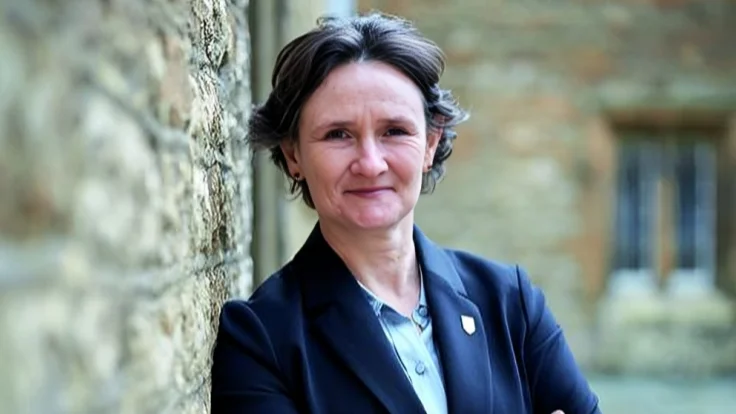Three academics from the University of Oxford have been elected as Fellows of the Royal Academy of Engineering. The new Fellows are Professor Ronald Roy, Professor Andrea Vedaldi, and Professor Michael Wooldridge. This recognition is given to individuals who have made significant contributions to their field, introduced innovations, led progress in business or academia, provided advice to government, or promoted a wider understanding of engineering and technology.
Sir John Lazar CBE FREng, President of the Royal Academy of Engineering, stated: "Today’s cohort join a community of around 1,700 of some of the most talented engineers and innovators in the UK and around the globe. Their knowledge and experience make them uniquely well placed to tackle the biggest challenges facing the world, and our determination to advance and promote excellence in engineering remains undimmed."
Professor Jim Naismith, Head of the Mathematical, Physical and Life Sciences (MPLS) Division at Oxford, commented: "I am delighted that three outstanding MPLS colleagues – Professors Ronald Roy, Andrea Vedaldi and Michael Wooldridge – have been elected Fellows of the Royal Academy of Engineering. This honour recognises not only their individual achievements and that of their co-workers and students at the forefront of engineering and computer science, but also the breadth of excellence across our Division. Their election is richly deserved, and I warmly congratulate them on this national recognition of their pioneering contributions."
Emeritus Professor Ronald Roy from Oxford’s Department of Engineering Science said: "It is a supreme honour to be named Fellow of one of the world's premier engineering academies and I am thankful to those colleagues who supported my nomination. As a senior academic I worked diligently to advance the position and impact of engineering at Oxford, and Fellowship in the Royal Academy of Engineering will provide an ideal platform to continue this effort."
Professor Roy’s research combines physics and engineering principles focused on sound applications in medicine, industry, ocean studies, sonoluminescence (the emission of light by bubbles excited by sound), ultrasound therapies using bubbles for targeted treatments, acousto-optic imaging techniques for soft tissue visualization, as well as work on nanoparticles used with lasers for imaging or surgery.
Professor Andrea Vedaldi from Oxford’s Department of Engineering Science remarked: "This milestone is not only a personal achievement but also a recognition of the impact and quality of the work carried out by my team and many collaborators. I am inspired by the Academy’s commitment to leadership, innovation, and creativity, and I look forward to the new opportunities and responsibilities that come with joining the Fellowship."
Vedaldi specializes in computer vision and machine learning. He co-leads Oxford's Visual Geometry Group (VGG) known for its global influence in computer vision research. His work covers explainable AI, deep internal learning methods, unsupervised learning approaches for visual data analysis as well as geometry-based solutions for interpreting 3D structures in images or videos. He has developed open-source platforms widely used in research communities.
Professor Michael Wooldridge from Oxford’s Department of Computer Science said: "I am deeply honoured to be elected a Fellow of the Royal Academy of Engineering. For me, this recognition is not only a personal milestone but also a testament to the growing impact of artificial intelligence. To be admitted to a community of such distinguished engineers is both humbling and inspiring, and I look forward to contributing to the Academy’s mission of promoting excellence in engineering."
Wooldridge has over 35 years’ experience working in artificial intelligence (AI), particularly multi-agent systems—AI programs designed to operate autonomously while cooperating with other agents. His recent focus involves exploring opportunities created by large language models such as ChatGPT for these systems. He has contributed significantly through public lectures on AI topics as well as testimony before government committees.
Further information about all newly elected Fellows can be found on Royal Academy of Engineering’s website.

